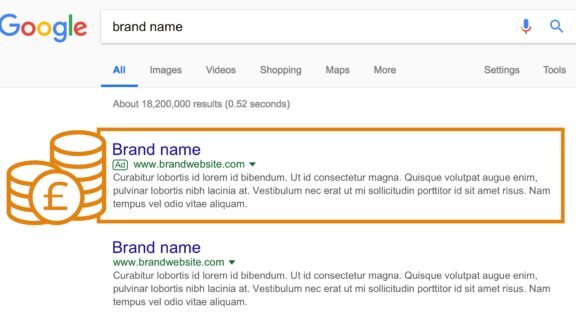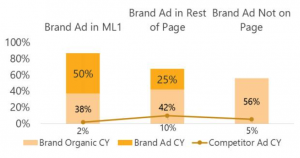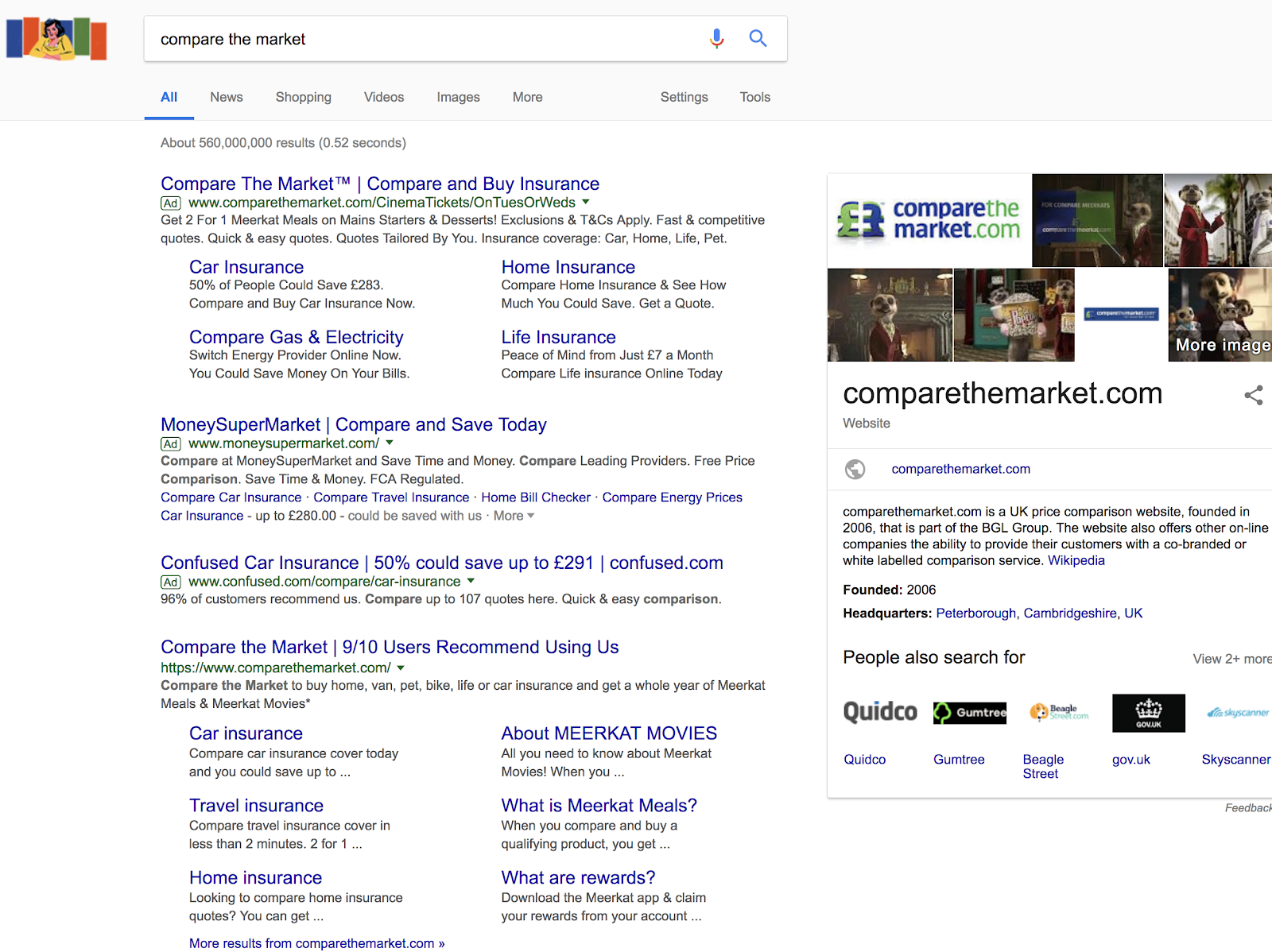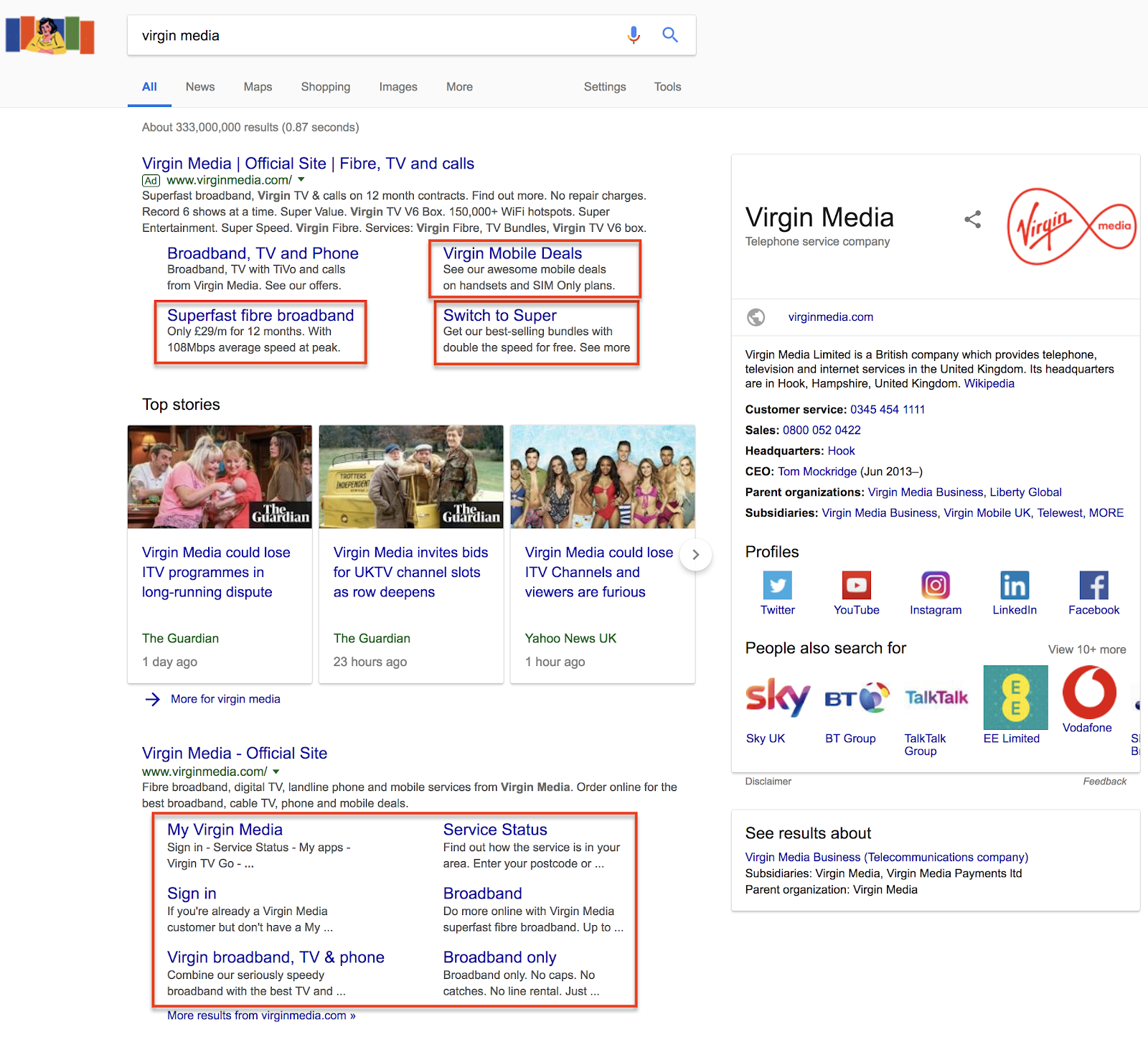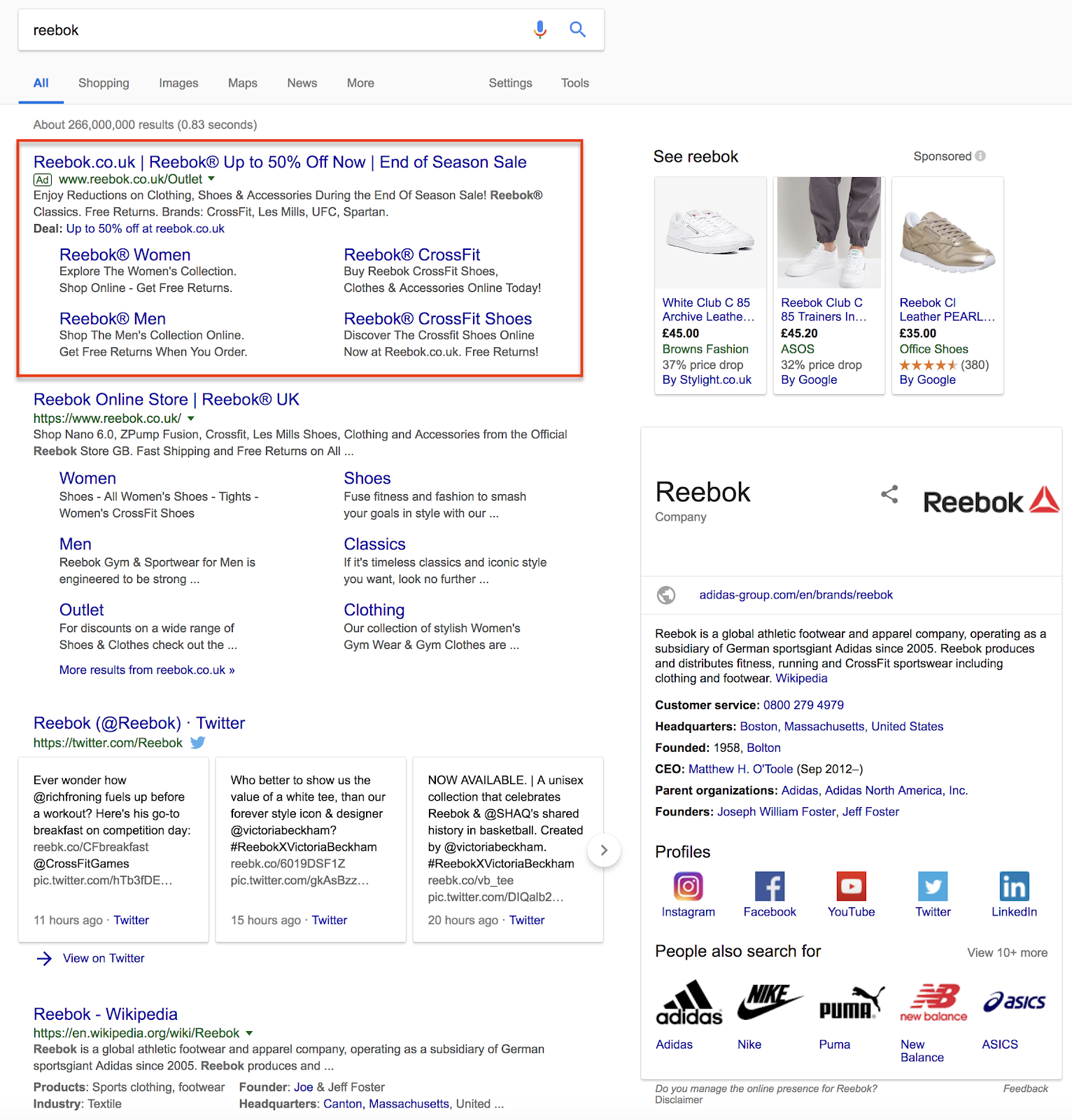Brand Bidding – Is It Worth It?
The subject of “brand bidding” has always been a topic that has been discussed at great length in the paid marketing industry. Businesses, agencies, consultants and in-house experts all seem to have a different opinion on what seems to be a quite simple notion:
“Do you want to pay for traffic that you can get for free organically?”
So, in this blog, I will cover some of the reasons why you might consider bidding on your brand and how only relying on your organic ranking (no matter where you are positioned) is limiting your control as brand bidding might actually be an opportunity to maximise traffic to your website. Let me explain.
What Is Brand Bidding?
First, it is worth spending a bit of time confirming what ‘bidding on brand keywords’ actually means. Simply put, it is adding your company’s brand name as a keyword into your paid search campaigns (e.g. Sky). Additionally, if you include a product with the brand name this is also considered brand bidding (e.g. Sky Broadband).
Now that we have established what brand bidding is, let’s take a look at the reasons why you should bid on your brand name.
To Maximise The Available Traffic
Various studies suggest that you will receive more traffic if you run paid ads in conjunction with your organic listings – with the below findings still very much relevant in 2018 and beyond.
In 2014, Bing analysed over 50 million impressions in the financial services industry and produced a study, which outlined the effects that running brand campaigns have on overall traffic in comparison to having no paid ads. The results showed that when both a brand ad and an organic listing were in position one, an advertiser would receive almost 90% of the available clicks. With an organic listing alone, the figure drops to 56% of all clicks. Below is a graph to represent this:
The difference between 88% and 56% is significant. So, if you want to receive the maximum amount of clicks possible, then you need to be bidding on your brand name. Not to mention, Bing’s research in 2015 for retail and travel brands showed similar results and supports brand bidding across multiple sectors.
Protect Your Brand From Competitors
Competitor bidding has been around for a very long time and there is nothing stopping anyone bidding on your brand term. The severity of this varies from industry to industry, but if you are not prepared to ‘protect your turf’ then you can expect to lose website traffic and potential conversions to your competitors. Let’s look at an example below:
This screenshot of a search for ‘Compare The Market’ (a trademarked phrase), shows how important it is to bid on your own brand. Despite their number one ranking, if ‘Compare The Market’ did not bid on their brand name, they stand to lose traffic to either Moneysupermarket.com or Confused.com (as well as others).
Just to confirm – buying a competitor’s brand keywords is perfectly fair as it is not banned by Google or Bing, and as long as you don’t include a trademark/brand in your ad text title or description, you are able to bid on any competitor’s brand.
Have Control Over Your Message
Bidding on your brand gives you a chance to provide an alternative message or even promote a special offer with more immediacy and effectiveness as opposed to changing the meta tags for your organic listing. Also, you can use your site link extensions to effectively send traffic to other areas of your site. Below is an example where this is being used very well:
As you can see, Virgin Media is taking the opportunity to bid on its brand name to promote current offers and deals while also featuring a completely different message than its organic result. The two compliment each other well because of the opportunity to have two different tones and marketing intentions on Google’s search result page, which is extremely valuable. Notice as well that the ‘Top stories’ section is very prominent above the organic results – another reason for Virgin to ensure they are visible through brand bidding.
Dominate Real Estate
Occupying as much space as possible will enhance your chances for people to engage with your brand. Dominance of the first page provides several opportunities for your customers to interact with one of your many marketing channels. This could be paid, organic, social, shopping ads or local. Look at the example below of Reebok:
Incidentally, Schuh has done a good job of ranking in position five for their Reebok category page in this search, but because of Reebok’s monopolisation of space, ranking fifth for this page means they are buried well below the fold – even on desktop.
Low CPC’s & High-Quality Score
If all the points above are not enough to convince you that bidding on your brand is not a bad idea, then perhaps this last point will be the final deciding factor. The cost per clicks associated with bidding on your brand will be significantly lower compared to any other. CPC’s such as 10p – 15p are normal for a brand campaign and even lower can be achieved. A matter of pence to guarantee a visit to your site is surely money well spent.
Below is a screengrab of the CPCs for John Lewis’s brand terms:
Additionally, because of the relevancy of brand campaigns, you will also get consistently high ‘Quality Scores’ (8-10), which will further boost your overall score for your account. Essentially, a brand campaign could plug gaps in other areas of your account, which are not performing as well. Need a boost to the Quality Score in your account? A brand campaign will help.
To Conclude
In the past, the idea of creating a brand campaign or even a brand ad group has too frequently been ruled out without due consideration. Strong organic performance can lead marketers and business owners to believe they already have their brand covered and the opportunity is at best, limited. However, your marketing efforts don’t end even once you have conquered Google’s organic mountain, as the digital landscape is vast and varied with opportunities in other areas. Bidding on your brand is one of many of those opportunities.
Some may claim that this will only work with big brands that are household names and I would agree that, as a tactic, it is certainly more effective for better-known brands, but the methodology is exactly the same no matter what size business. Using Google AdWords to promote your brand is an investment and hopefully, after reading this, you will be thinking differently when it comes to brand bidding. In fact, can you afford not to?
If you would like to discuss paid marketing for your business, please get in touch with the StrategiQ team today.
